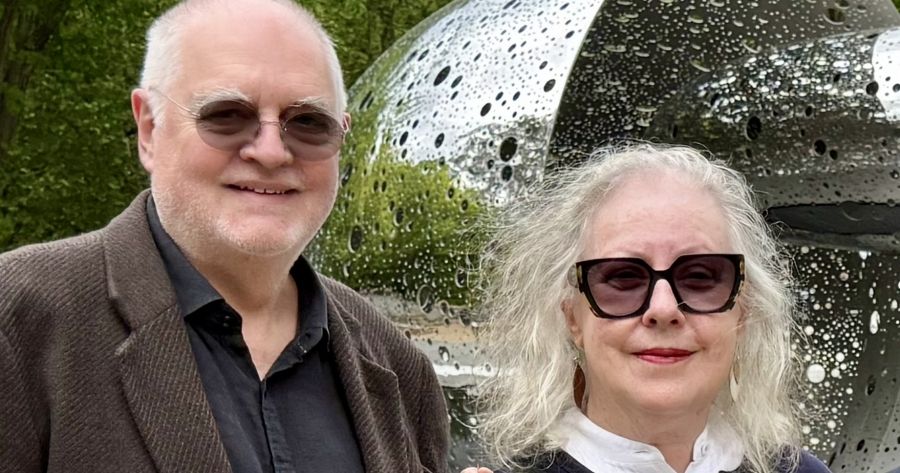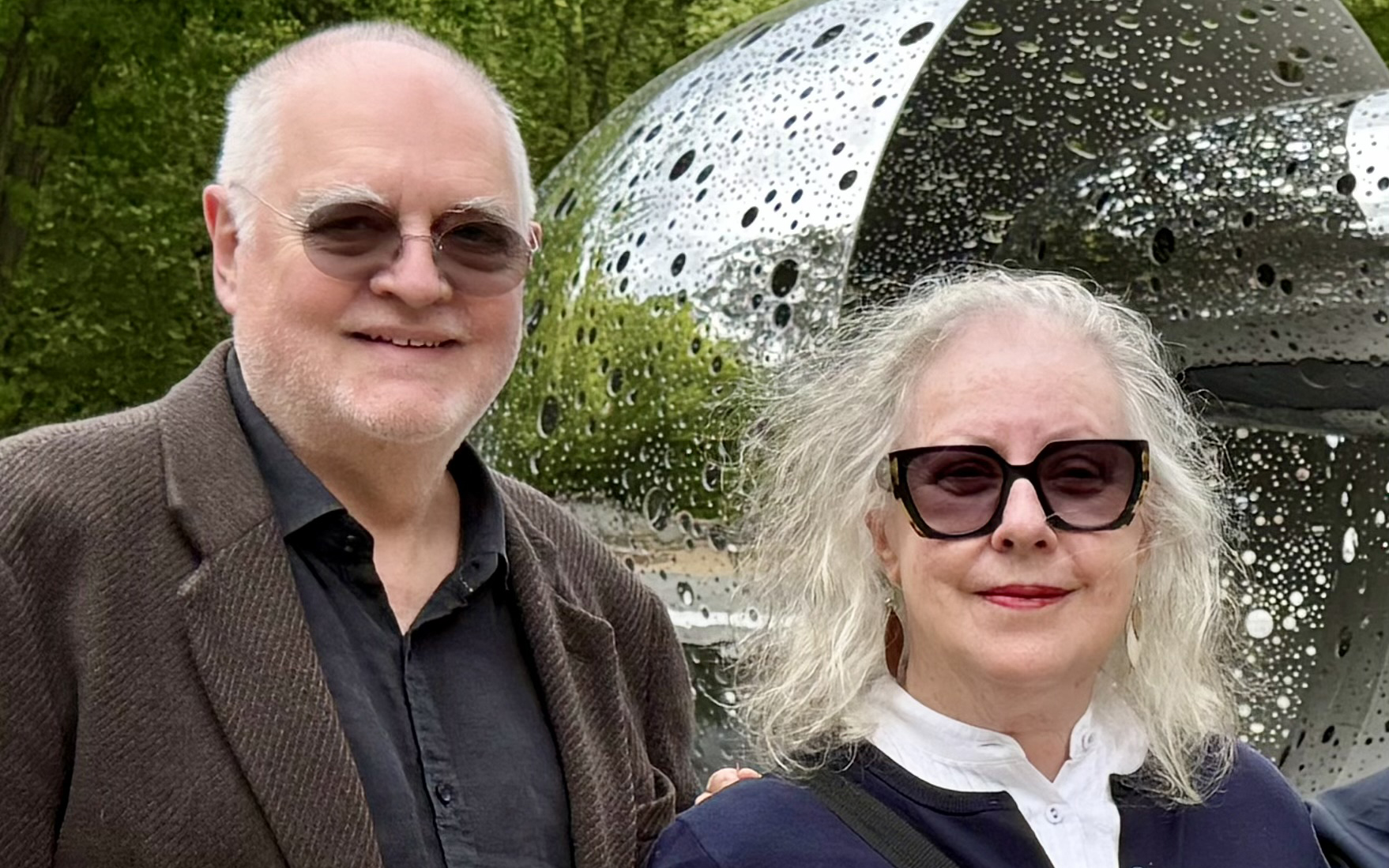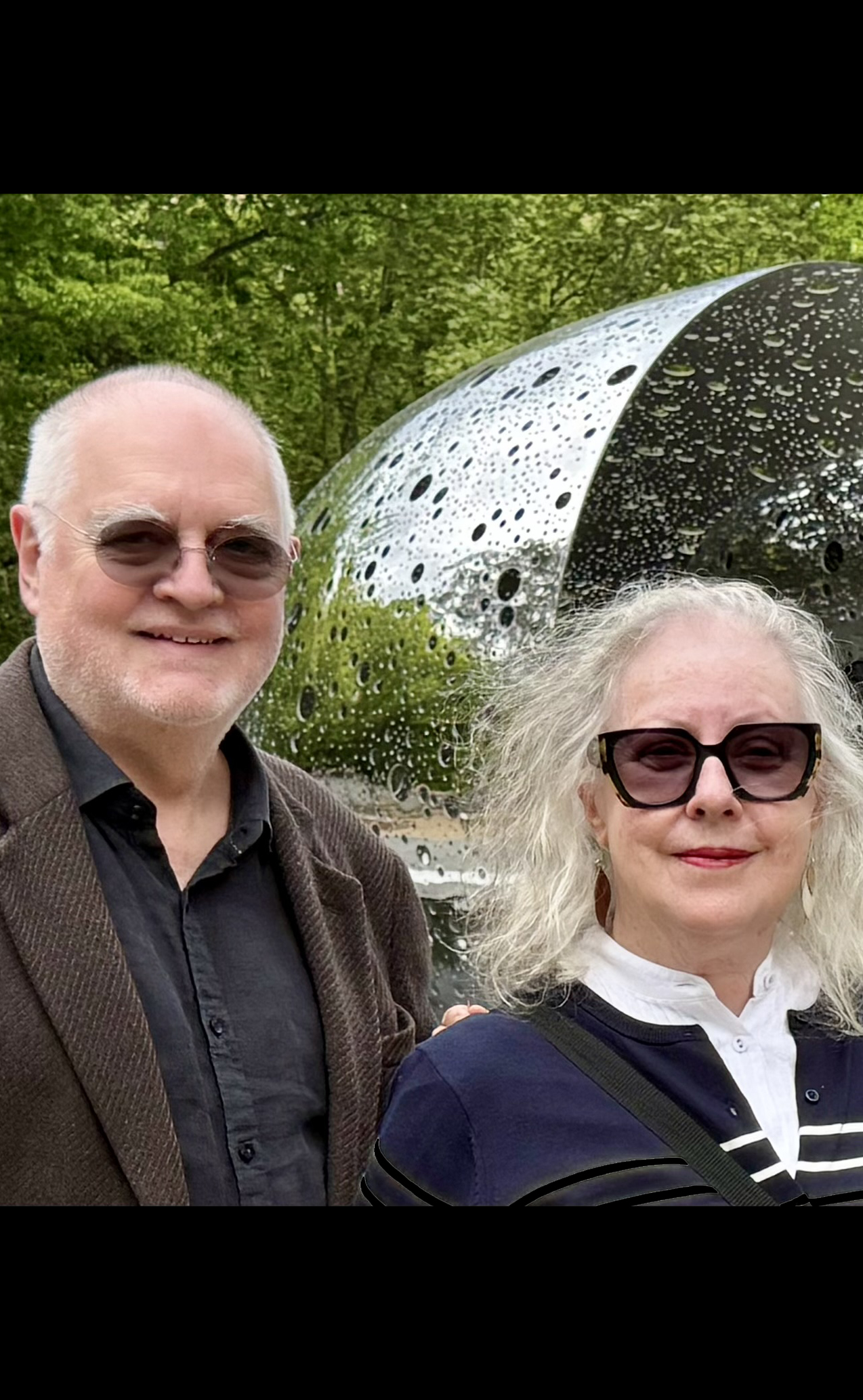
- Free Article: No
- Contents Category: Publisher of the Month
- Custom Article Title: Publishers of the Month with Linsay and John Knight
- Review Article: No
- Article Title: Publishers of the Month with Linsay and John Knight
- Online Only: No
- Custom Highlight Text:
Linsay and John Knight are the founders and publishers of the Sydney-based specialist poetry imprint Pitt Street Poetry. When the press was founded in 2012, most mainstream publishers had stopped publishing Australian poetry. Many well-established mid-career Australian poets were cast adrift. PSP was created to help fill that gap. It was generously supported by the Australia Council in its early years.
- Featured Image (400px * 250px):

- Alt Tag (Featured Image): Publishers of the Month with Linsay and John Knight
What was your pathway to publishing?
Linsay: my first degrees at Macquarie were designed for future teachers. Instead I joined the Macquarie Dictionary, working on children’s reference books. Thence a natural move into children’s books. I cut my teeth at Scholastic and wound up Head of Children’s Books at Random House. My last job was Head of ANZ Publishing at Walker Books.
John: I started at Macquarie with Linsay in the 1970s, hoping to be a poetry academic. I ended up a renal physician at the old Camperdown Children’s Hospital. The poetry passion persisted. It was inevitable that we’d start a micro-press together!
How many titles do you publish each year?
Sixty poetry books over the past twelve years – five books a year. We’ll do five more in 2025.
Do you edit the books you commission?
We don’t commission. Poets approach us – more than we could ever publish – and we are fiercely selective. Quality is the essential and only criterion. Then we work closely together, line by line. The end result is often quite different from the starting place.
What qualities do you look for in authors?
Poetry is a craft. Don Paterson famously said, you wouldn’t expect to pick up a trumpet for the first time and play it well. It’s the same with writing a poem. We look for authenticity of voice, knowledge of that craft, and a singular understanding of our world.
In your dealings with authors, what is the greatest pleasure – and challenge?
Publishing poetry has led to wonderful times in wonderful places – launching Benedict Andrews’s Lens Flare at the Young Vic theatre while he rehearsed a landmark Streetcar Named Desire. Standing room only for a reboot of Luke Davies’ 1982 Four Plots for Magnets at the Brett Whiteley studio. And regular gigs at Newcastle Writers Festival, where they take poetry seriously.
Though it is invidious to ask publishers to name their favourite books, are there one or two books you are especially proud to have published?
Our first two books back in 2012: The Sunset Assumption by John Foulcher and Travelling with the Wrong Phrasebooks by Jean Kent – written in the Keesing Studio in Paris with Literature Board grants. In addition to the standard paperback we made some illustrated, limited edition hardbacks – halcyon days! We’re also pretty proud of two books which won the Prime Minister’s Literary Award: Melinda Smith’s Drag Down to Unlock or Place an Emergency Call in 2014 and Anthony Lawrence’s Headwaters in 2017.
Do you write yourself? If so, how has it informed your work as a publisher?
Linsay has written non-fiction books and curated many collections of stories for children. John has authored around ninety medical science papers. Writing regularly sharpens a publisher’s critical eye.
What kinds of books do you most enjoy reading?
Contemporary poetry of course. Literary biographies. Classic, stylish crime fiction. Our new imprint will be Cliff Street Crime – writers with an unpublished detective story in the bottom drawer. Watch this space!
Which editors/publishers do you most admire (from any era)?
In the olden days, the Hogarth Press, Faber, Jonathan Cape. Today, David Fickling in Oxford. Persephone in Lamb’s Conduit Street. Martin Bax at Ambit. Here in Oz, Les Murray’s classic poetry list for Angus & Robertson. Children’s literature guru Mark Macleod. Susan Butler at Macquarie Dictionary. Miles Merrill and his Poetry Slams.
How significant, in a protean age, are book reviews?
Australian print and electronic media have forsaken poetry reviews and reviewers. The day Radio National dropped Poetica was a very dark day. Australian Book Review is one of the last places championing long-form, serious poetry criticism. We’re proud to publish Geoff Page, a thoughtful, prolific reviewer. The good news: a growing body of serious, impressive on-line critical writing, like Martin Duwell’s Australian Poetry Review and Cordite Poetry Review.
What’s the outlook for new writing of quality?
Survival means more small presses like ours, publishing for passion, not profit. With e-books and global print-on-demand, the barriers to entry have never been lower. More writer-owned, mutually supportive publishing collectives. The beating heart, the lifeblood of the future of poetry: quality and craft.



Comments powered by CComment